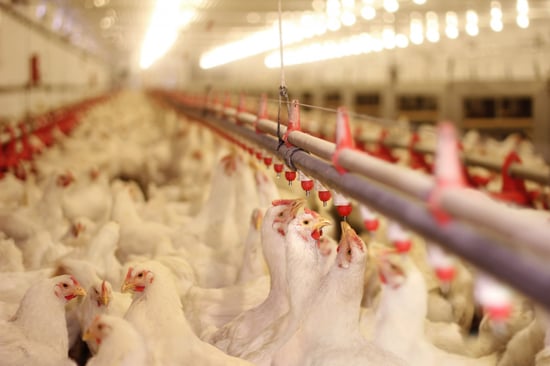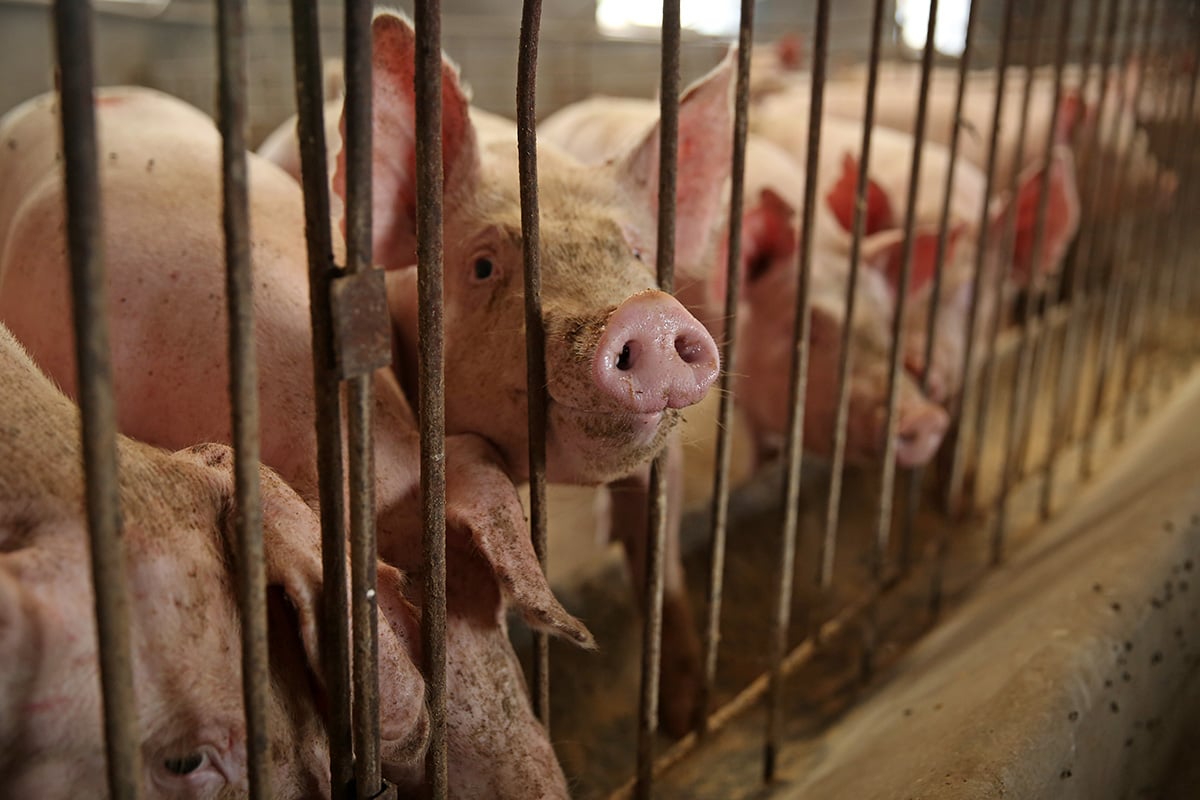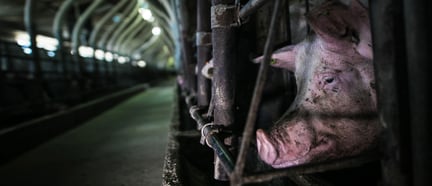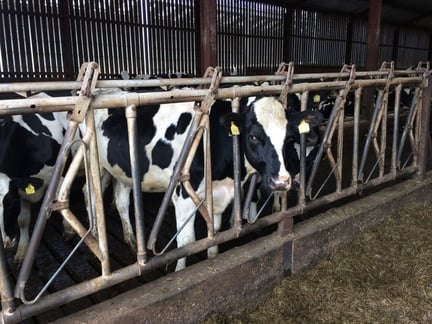On World Health Day, World Animal Protection launches a new report that lays bare the most damaging human health impacts linked to factory farming, and how these will only get worse as the demand for meat continues to grow in all corners of the world.
World Animal Protection report, The Hidden Health Impacts of Industrial Livestock Systems, exposes how governments around the world are turning a blind eye to the public health toll of factory farming, as well as the suffering of billions of farmed animals.
By 2030, meat consumption is projected to grow 30% in Africa, 18% in the Asia Pacific, 12% in Latin America, 9% in North America and 0.4% in Europe. This skyrocketing demand sees billions of stressed animals mutilated and confined to cramped and barren cages or pens for their whole lives. Over seventy percent of the 80 billion land animals farmed globally are raised and slaughtered within cruel factory farming systems each year.
Malnutrition and obesity:
Factory farming systems have displaced local and sustainable food production. Land is used to plant crops to feed factory farmed animals, not people, undermining nutrition and food security. At the same time, high volumes of cheap meat produced out of factory farms is equating to excessive meat consumption - one of the four leading risk factors for chronic illness.
Physical and mental impacts for workers:
Within factory farming systems, physical and mental health impacts suffered by workers include; poor working conditions in meat slaughtering, processing and packaging facilities, physical injury and psychosocial and mental health issues.
Systemic shifts are needed to deliver the biggest health gains for our population. Some of those include re-orientating subsidies away from factory farming towards humane and sustainable practices, supporting efforts to significantly reduce meat and dairy production and consumption in countries with high average per person consumption, improving affordability of plant-based foods, and providing transition support for farmers no longer wishing to engage in factory farming.
In order to make these shifts, World Animal Protection is calling for governments around the world to impose a moratorium on factory farms and introduce and enforce higher farmed animal welfare standards.
Factory farms are making us sick. On the surface, factory farmed meat, fish and dairy products seem cheap, but they are costing us our health and governments trillions of dollars each year to mop up the damage.
We need to break the cycle of suffering in our food system. Government support for cheap meat is equating to more animals being churned through cruel factory farms. Now is the time for governments to focus on better health outcomes for people, animals and the planet.
There is no future for factory farms. We need a moratorium on factory farming. The food industry needs to embrace a humane and sustainable future where we consume predominantly plant-based diets, and remaining farmed animals are kept in genuinely high welfare systems where they can have good lives.

The hidden health impacts of industrial livestock systems
Read the full reportWhat are we doing about it?
Scorecard of shame
World's worst factory farming giants ranked on their greenhouse gas emissions compared to vehicles on the road
Animal Feed Trade
As demand for meat and dairy grows around the world, the global trade in destructive crops to feed factory farmed animals spells misery for farmed and wild animals alike.


